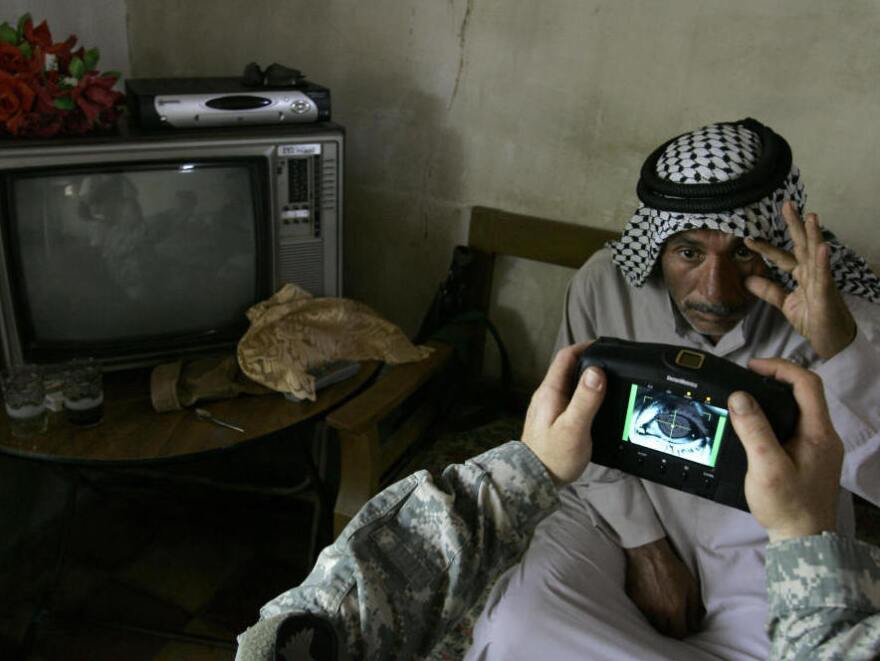Since the start of the war in Iraq, U.S. forces have collected sensitive biometric information -- fingerprints, DNA, iris and facial scans, and the like -- from suspected insurgents and Iraqi civilians.
According to The Boston Globe, there is a debate about what should happen to the database as the war comes to a close. Experts estimate "nearly seven percent of Iraq's 29 million people are cataloged," Farah Stockman reports. In the wrong hands, that data could be extremely dangerous.
Some Iraqis fear that the transfer of data to their government could create a "hit list" of Iraqis who worked with the U.S. military or a tool for settling ethnic or sectarian scores.
In the article, Lt. Col. Thomas Pratt, chief of the Military Operations Branch of the military's Biometrics Identity Management Agency, which "leads Department of Defense activities to program, integrate, and synchronize biometric technologies and capabilities and to operate and maintain DoD's authoritative biometric database to support the National Security Strategy," indicates the database used to contain information about each person's religious beliefs and tribal affiliations.
That information has been removed, he said.
Copyright 2021 NPR. To see more, visit https://www.npr.org.




